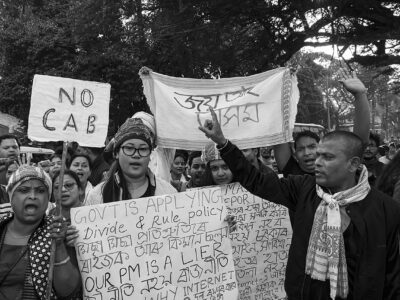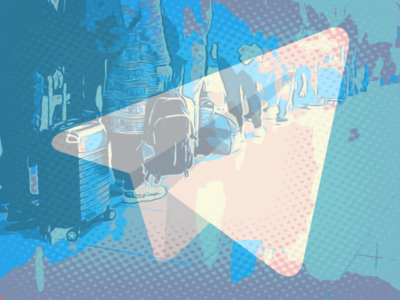La nación himalaya de Bután, con una población de cerca de 750,000 personas, es conocida por la frase “felicidad nacional bruta” —lema acuñado en 1972 para representar el compromiso del país, que sirve a los valores espirituales budistas en lugar del desarrollo material occidental. Sin embargo, las estrictas leyes de ciudadanía de Bután no están haciendo mucho para alentar la felicidad en estos días, pues miles de niños butaneses abandonados por sus padres se han vuelto apátridas, de acuerdo con las leyes butanesas.
La Constitución del país dice:
A person, both of whose parents are citizens of Bhutan, shall be a natural born citizen of Bhutan.
Toda persona cuyos padres son ciudadanos de Bután, será ciudadana de Bután por nacimiento.
Haciendo las cosas especialmente difíciles, los niños cuyos padres son desconocidos o niños con un solo padre que no es ciudadano no pueden ser registrados en el padrón nacional. En Bután, sin documentos de ciudadanía no es posible solicitar servicios del gobierno, tener propiedades u obtener un pasaporte para viajar al extranjero.
Vishal Arora, periodista, escritor y cineasta que vive en Nueva Delhi, ha publicado un documental sobre este tema, como parte de una campaña llamada Media Project:
Abandoned by their fathers, these children are brought up by their mothers, who endure financial hardships to raise them and yet fail to ensure a good future for them.
For, Bhutan requires the legal identity of a child’s father before granting him or her citizenship rights.
These mothers and their fatherless children are paying the price for growing alcoholism and the misuse of the age-old tradition of nightly dating, called “Night Hunting,” the two key reasons behind the high incidence of unprotected premarital sex.
Abandonados por sus padres, a estos niños los crían sus madres, que atraviesan dificultades financieras para criarlos y aun así no logran garantizarles un buen futuro.
Es que Bután requiere la identidad legal del padre del niño antes de concederle derechos de ciudadanía.
Esas madres y sus hijos sin padre están pagando el precio por el creciente alcoholismo y el mal uso de la antigua tradición de citas nocturnas, llamada “Cacería Nocturna”, las dos razones claves detrás de la alta incidencia de relaciones sexuales premaritales sin protección.
El destino de esos niños sin padre es incierto debido a la demora en el proceso de registro de Bután, cuando una madre no puede identificar al padre de su hijo. El aborto es ilegal en Bután, excepto en casos de violación, incesto, riesgos en la salud mental o amenazas a la vida de la madre. Como resultado, muchas mujeres recurren a abortos ilegales o cruzan la frontera a la India para poner fin al embarazo.
El bloguero Passu dice:
I find more compassion in abortion; killing a cell for the sake of a woman’s life, and liberating both the mother and the child from depth of mistake. Abortion is not an ice cream that everybody would enjoy if made free, it is but the only option left when everything seems wrong. No woman will go for abortion for pleasure.
Encuentro más compasión en el aborto, matar un embrión por el bien de la vida de la una mujer, y liberar a madre e hijo de un grave error. El aborto no es un helado que todos disfrutarían si fuera gratis, es la única opción que queda cuando todo parece equivocado. Ninguna mujer se somete a un aborto por placer.
Yeshey Dorji escribe en su blog:
Centuries of societal indoctrination has numbed our mind into believing that a child born out of the wedlock is, without contest, fathered by the husband of the woman bearing the child. This belief is so deep rooted in our consciousness that to suggest otherwise is anathema. But if you were to contemplate this matter a little deeper, you will realize that this is a fallacy of gargantuan proportions. The truth is that no one, but a mother alone may testify to the veracity of the fact. For all you know, the child could have been secretly fathered by someone from Timbuktu.
This brings us to the realization that where the Bhutaneseness of a child is needed to be established, nothing can be as authoritative and genuine and genetically pure as that of the Bhutanese mother who bore the child. Since there is room for duplicity, I think it is erroneous to set the criteria that the father of the child ought to be a Bhutanese for the child to qualify as a Bhutanese.
Siglos de lavado de cerebro social han nublado nuestra mente para creer que un niño nacido fuera del matrimonio es, sin discusión, engendrado por el esposo de la mujer que tiene al niño. Esta creencia está tan arraigada en nuestra conciencia que sugerir otra cosa es una abominación. Pero si fueras a considerar el asunto un poco más profundamente, te darás cuenta de que es una falacia de proporciones pantagruélicas. La verdad es que nadie más que la madre puede atestiguar la veracidad de ese hecho. Por todo lo que sabemos, este niño podría haber sido engendrado por alguien de Timbuktú.
Eso nos hace dar cuenta de que la butanidad de un niño necesita ser establecida, nadie puede ser tan autoritativo y genuino y genéticamente puro como la madre butanesa que tuvo al niño. Como no hay espacio para la duplicidad, creo que es erróneo sentar el criterio de que el padre del niño debe ser un butanés para el niño califique como un butanés.
Sonam Ongmo escribe en su blog:
Apart from having to deal with the cowardly men who have made them pregnant, and leave both woman and child in limbo, the least she should have to deal with is the government doing this too. Why should a woman have to prove who the father is in oder to avail citizenship for her child? What if the woman was raped? And even if she wasn't, what prevents her or her child from being a citizen? It is inhumane to put a woman through this!
It is the Nation's responsibility; the government's responsibility to ensure citizens, especially women, this right and to make it as easy as they can for them to avail this right.
Además de tener que lidiar con hombres cobardes que las dejaron embarazadas, y de dejar a madre e hijo en el limbo, lo menos con lo que ella debería lidiar es con el gobierno también. ¿Por qué una mujer debe probar quién es el padre para procurarle ciudadanía a su hijo? ¿Y si a la mujer la violaron? Y aunque no hubiera sido así, ¿qué le impide a ella o a su hijo ser ciudadanos? ¡Es inhumano hacer que una mujer pase por esto!
Es responsabilidad de la nación; responsabilidad del gobierno garantizar a los ciudadanos, sobre todo a las mujeres, este derecho y hacerlo fácil para que ellas puedan aprovechar este derecho.
Yeshey Dorji escribe:
A benevolent law should not encourage gender bias and unequal treatment. We have always been a matriarchal society and thus, it is not in our character to treat our women as if they were second class citizens. Our laws should give them the same dignity, right and freedom as those that are accorded our men.
Una ley benevolente no debería alentar prejuicios de género y trato desigual. Siempre hemos sido una sociedad matriarcal y, por ende, no es nuestro carácter tratar a nuestras mujeres como si fueran ciudadanas de segunda clase. Nuestras leyes deben darles la misma dignidad, derecho y libertad que se concede a nuestros hombres.
Está por verse si el gobierno butanés reformará sus reglas y regulaciones, o si las mujeres puede esperar más de las mismas dificultades que enfrentan ahora.







